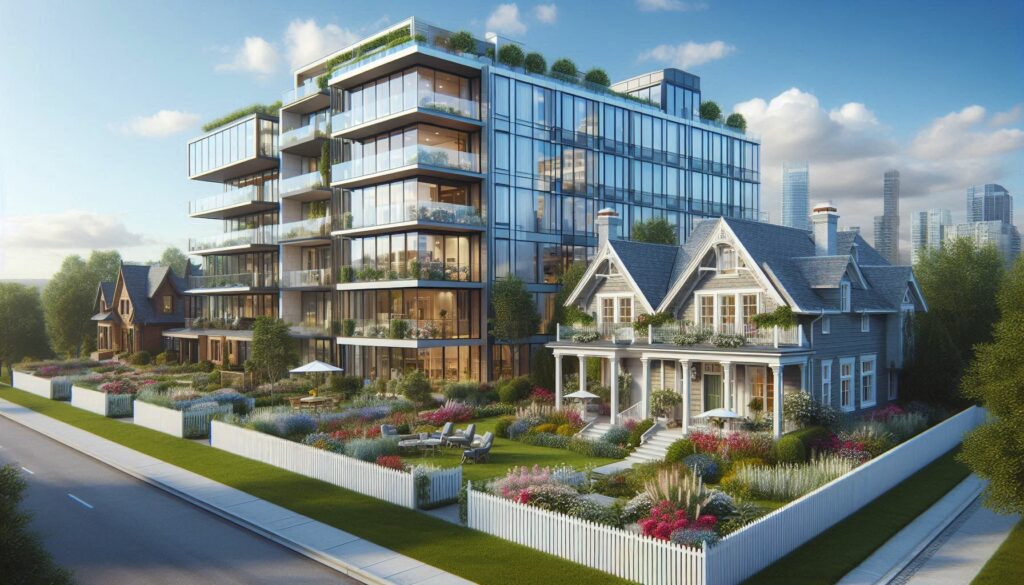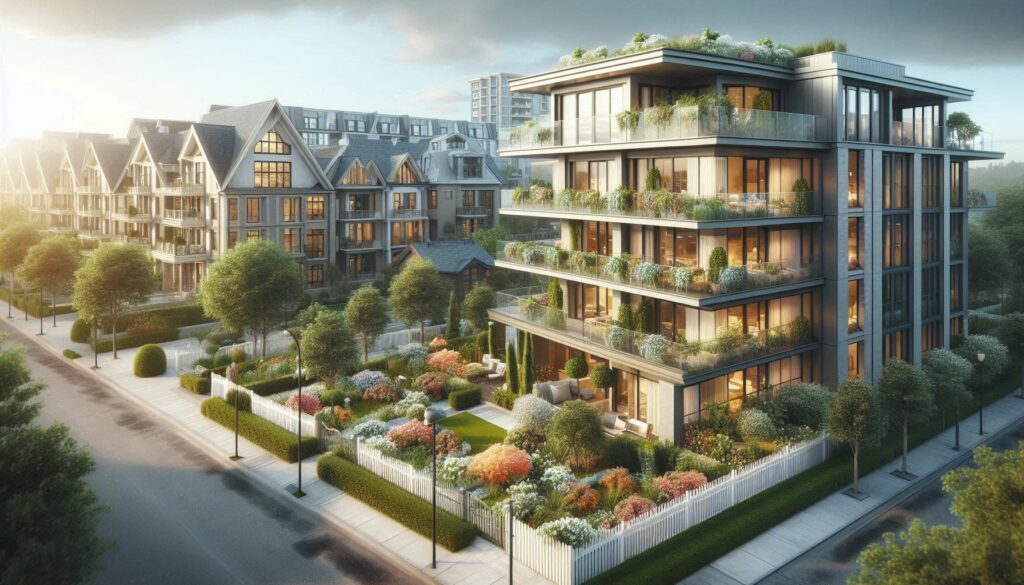
Introduction
Deciding whether to own or rent a home is one of the most significant financial decisions you’ll make. Both options come with their own set of advantages and disadvantages, and the best choice ultimately depends on your individual circumstances, financial goals, and lifestyle.
This article will delve into the factors to consider when choosing between owning and renting, providing you with the information you need to make an informed decision.

The Financial Landscape: Owning vs. Renting
Understanding the financial implications of owning and renting is crucial.
Financial Benefits of Owning
- Building Equity:
- As you pay down your mortgage, you build equity in your home, which is a valuable asset.
- Potential for Appreciation:
- Real estate can appreciate in value over time, providing a return on your investment.
- Tax Benefits:
- Mortgage interest and property taxes are often tax-deductible.
- Fixed Monthly Payments:
- Once you secure a fixed-rate mortgage, your monthly payments remain stable.

Financial Benefits of Renting
- Lower Upfront Costs:
- Renting requires a security deposit and first month’s rent, significantly less than a down payment on a home.
- Predictable Monthly Costs:
- Rent typically includes property taxes and insurance, making budgeting easier.
- Flexibility:
- Renting allows you to move more easily if your job or lifestyle changes.
- No Maintenance Costs:
- Landlords are responsible for repairs and maintenance.

Financial Drawbacks of Owning
- Significant Upfront Costs:
- Down payment, closing costs, and moving expenses.
- Ongoing Maintenance Costs:
- Homeowners are responsible for repairs, maintenance, and property taxes.
- Potential for Depreciation:
- Real estate values can decline, resulting in a loss on your investment.
- Less Flexibility:
- Selling a home can take time and money.

Financial Drawbacks of Renting
- No Equity Building:
- Rent payments do not contribute to building equity.
- Potential for Rent Increases:
- Landlords can increase rent, making budgeting less predictable.
- Limited Customization:
- Renters have less freedom to make changes to their living space.
- Lack of Long-Term Investment:
- Rent payments are an expense, not an investment.

Lifestyle Considerations: What Fits You Best?
Beyond the financial aspects, your lifestyle plays a significant role in determining whether owning or renting is the right choice.
Lifestyle Benefits of Owning
- Stability and Security:
- Owning a home provides a sense of stability and security.
- Personalization:
- Homeowners can customize their living space to their liking.
- Community Involvement:
- Owning a home often fosters a stronger sense of community.
- Long-Term Planning:
- Homeownership encourages long-term financial planning.
Lifestyle Benefits of Renting
- Flexibility and Mobility:
- Renting allows for greater flexibility and mobility.
- Less Responsibility:
- Renters are not responsible for maintenance and repairs.
- Access to Amenities:
- Many rental properties offer amenities like gyms and pools.
- Urban Living:
- Renting is often the only option in desirable urban areas.

Factors to Consider When Choosing
- Financial Stability:
- Do you have a stable income and sufficient savings for a down payment?
- Long-Term Goals:
- Do you plan to stay in the same area for several years?
- Lifestyle Preferences:
- Do you prefer flexibility or stability?
- Market Conditions:
- Is it a buyer’s or seller’s market?
- Maintenance Skills:
- Are you comfortable with home maintenance and repairs?

Calculating the Costs: A Practical Approach
To make an informed decision, it’s essential to calculate the costs of both owning and renting.
Cost of Owning (Example)
- Purchase Price: $300,000
- Down Payment (20%): $60,000
- Closing Costs (3%): $9,000
- Mortgage (30-year fixed, 5% interest): $1,288 per month
- Property Taxes: $200 per month
- Homeowners Insurance: $100 per month
- Maintenance (1% of home value annually): $250 per month
- Total Monthly Cost: $1,838
Cost of Renting (Example)
- Monthly Rent: $1,500
- Renters Insurance: $20 per month
- Utilities (estimated): $150 per month
- Total Monthly Cost: $1,670

Comparing Owning and Renting Costs (Example)
| Category | Owning | Renting |
| Monthly Housing Cost | $1,838 | $1,670 |
| Upfront Costs | $69,000 | $3,000 |
| Equity Building | Yes | No |
| Maintenance Costs | Yes | No |
| Flexibility | Low | High |

The Break-Even Point: When Owning Becomes More Affordable
The break-even point is the time it takes for the financial benefits of owning to outweigh the costs of renting. This depends on factors like property appreciation, mortgage interest rates, and rental costs.
- Rule of Thumb:
- If you plan to stay in a home for at least five years, owning is often more financially advantageous.

Making the Decision: Personal Considerations
Ultimately, the decision to own or rent is a personal one. Consider these factors:
- Your Current Stage of Life:
- Are you just starting out, or are you ready to settle down?
- Your Risk Tolerance:
- Are you comfortable with the risks associated with homeownership?
- Your Financial Goals:
- Are you focused on building wealth or maintaining flexibility?
Wrap Up
Choosing between owning and renting is a significant decision that requires careful consideration of your financial situation, lifestyle preferences, and long-term goals.
By weighing the pros and cons of each option and calculating the costs, you can make an informed decision that aligns with your individual needs.
After reading this, are you more inclined to rent or buy? What are your next steps in your housing journey? Share your action plan or reflections in the comments!
Sources:
- U.S. Department of Housing and Urban Development (HUD):
- Website: https://www.hud.gov/
- Consumer Financial Protection Bureau (CFPB):
- “Owning a Home”: https://www.consumerfinance.gov/owning-a-home/
- Investopedia:
- “Rent vs. Buy Calculator”: https://www.investopedia.com/calculators/rent-buy-calculator/
- NerdWallet:
- “Should You Rent or Buy a Home?”: https://www.nerdwallet.com/article/mortgages/renting-vs-buying-home
- Bankrate:
- “Rent vs. Buy Calculator”: https://www.bankrate.com/mortgages/rent-or-buy-calculator/
Leave a Reply
You must be logged in to post a comment.